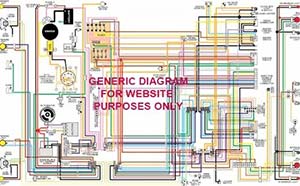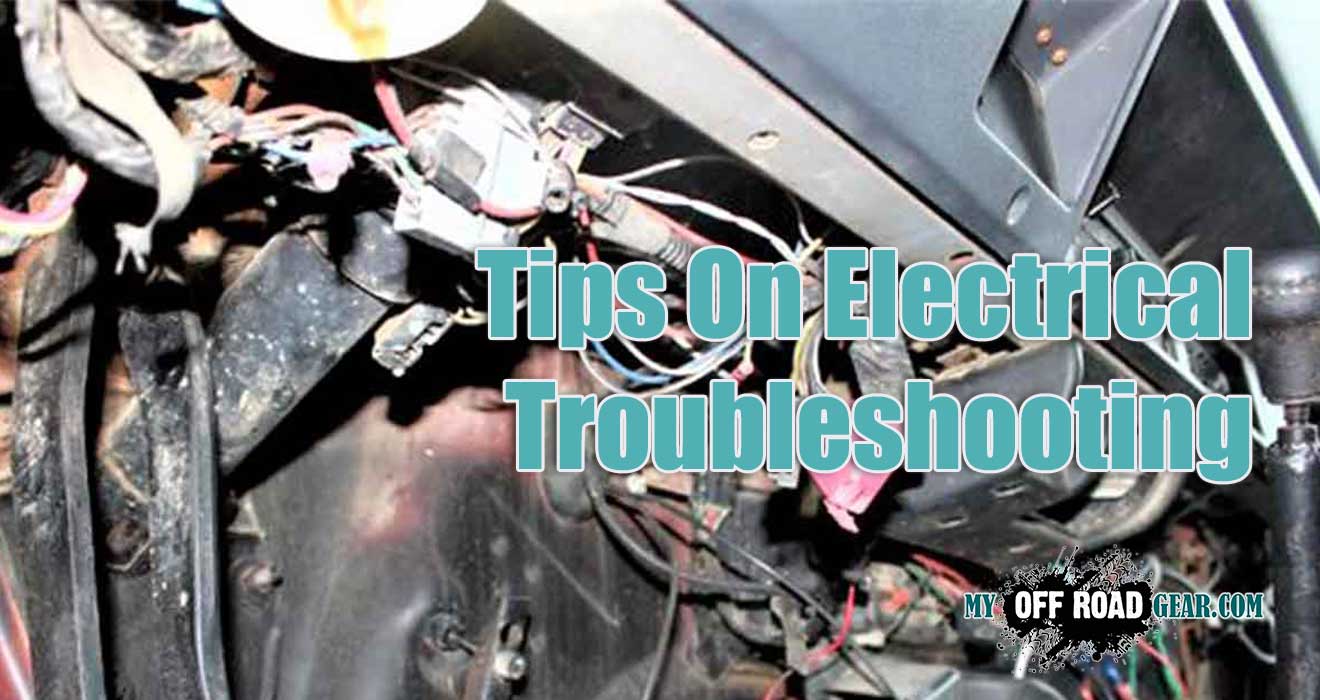
Understanding the Basics of Jeep Electrical Systems
Before delving into troubleshooting, it’s crucial to have a basic understanding of your Jeep’s electrical system. From the battery and alternator to the complex network of wires and sensors, every component plays a vital role in the overall functionality of your vehicle.
If there is one thing, Jeepers detest, it has to be electrical troubleshooting. They would much rather make the Rubicon Trail – alone! However, troubleshooting doesn’t have to be so difficult. Troubleshooting is a scientific process that requires a methodological approach. Once you know what to do and take a step-by-step attitude towards doing it, troubleshooting can be a piece of cake.
Using troubleshooting manuals:
- Get yourself an electrical troubleshooting manual. This is not a trial and error kind of problem. Neither is it a Eureka! Moment. The only way to go about troubleshooting is to follow instructions.
- Electrical troubleshooting manuals have wonderful diagnostic trees that follow a logical flow. The troubleshooting manuals are created in an easy to comprehend and use manner. A good wiring diagram allows you to troubleshoot any electrical problem.
- Getting a Troubleshooting Manual for Your Jeep is the first step to effective electrical troubleshooting. Also, you need to ensure that the troubleshooting manual shows the schematic and the wiring diagram.
Electrical troubleshooting tools:
It would help if you also bought some tools to ensure effective troubleshooting.
- A 12-volt test is required to check if the circuit has the power or not. When hooked up in reverse, you can use it to check if a ground circuit is good or not.
- A VOM or Volt Ohm Meter is required to perform specific voltage and resistance tests during troubleshooting.
- A multimeter is another tool that you will need to help you see the problem.
Tips for Jeep Electrical Troubleshooting
1. Start with the Basics: Battery Check
The most common culprit for electrical issues is often the simplest—the battery. Check for loose or corroded battery terminals, ensure proper voltage, and inspect the battery’s overall condition. A weak or faulty battery can lead to a myriad of problems, from difficulty starting the engine to erratic electrical behavior.
2. Fuse Inspection: The First Line of Defense
Fuses act as safeguards for various electrical components in your Jeep. A blown fuse can disrupt power to critical systems. Use your Jeep’s manual to identify the location of fuses related to the malfunctioning component and inspect them for signs of damage. Replace any blown fuses with the appropriate amperage rating.
3. Multimeter Mastery: Voltage and Continuity Checks
Investing in a multimeter is a wise decision for any Jeep owner. This versatile tool allows you to measure voltage, check continuity, and pinpoint electrical issues accurately. Perform voltage checks at different points in the system to identify irregularities that may be causing malfunctions.
4. Ground Connection Inspection: Stay Grounded
Jeep electrical systems rely heavily on proper grounding. Inspect ground connections for corrosion or loose connections, as these issues can lead to a range of electrical problems. Clean connections thoroughly and ensure a solid, corrosion-free ground for each component.
5. Scan for Fault Codes: OBD-II Diagnostic Tool
Modern Jeeps are equipped with On-Board Diagnostics II (OBD-II) systems that can provide valuable insights into electrical issues. Invest in an OBD-II diagnostic tool to scan for fault codes. These codes can guide you toward specific problem areas, saving time and streamlining the troubleshooting process.
6. Check Relays and Switches: Control Points
Relays and switches control the flow of electricity to various components. If a particular function, such as lights or the cooling fan, is malfunctioning, inspect the corresponding relay or switch. Swap relays between similar components to test for functionality and identify faulty units.
7. Inspect Wiring Harnesses: The Nervous System
The wiring harness is the nervous system of your Jeep’s electrical network. Inspect wiring for signs of damage, wear, or corrosion. Pay attention to areas where the harness may rub against components, potentially causing exposed wires. Repair or replace damaged sections as needed.
8. Component Isolation: Pinpointing the Culprit
If the issue persists, isolate specific components. Disconnect and test each component individually to identify the source of the problem. This methodical approach helps pinpoint the faulty part and avoids unnecessary replacement of functional components.
9. Consult Jeep Forums and Resources: Collective Wisdom
Jeep enthusiasts form a vibrant community, and their collective experiences can be invaluable. Consult online forums, community websites, and Jeep-specific resources for insights into common electrical issues and troubleshooting tips. Fellow Jeep owners may have encountered similar problems and can offer guidance based on their experiences.
10. Professional Assistance: When in Doubt
If troubleshooting becomes overwhelming or if you’re unable to identify the issue, seeking professional assistance is a prudent step. Certified Jeep technicians have the expertise and specialized tools to diagnose complex electrical problems accurately.
Conclusion
Jeep electrical troubleshooting requires a blend of technical know-how and a systematic approach. By starting with the basics, utilizing diagnostic tools, and consulting resources, you can unravel the mysteries of your Jeep’s electrical system. Remember, patience is key, and a methodical approach will lead you to the root cause of the issue. Whether you’re an experienced DIY enthusiast or a Jeep owner navigating electrical troubleshooting for the first time, these expert tips will empower you to keep your Jeep running smoothly on and off the beaten path



Add Comment